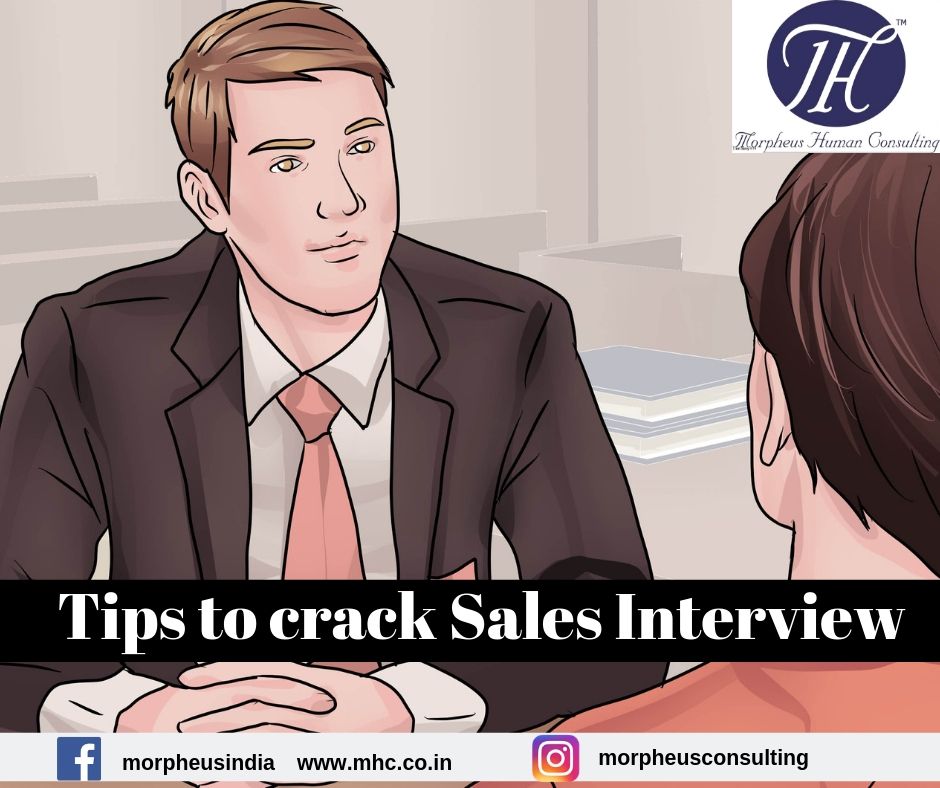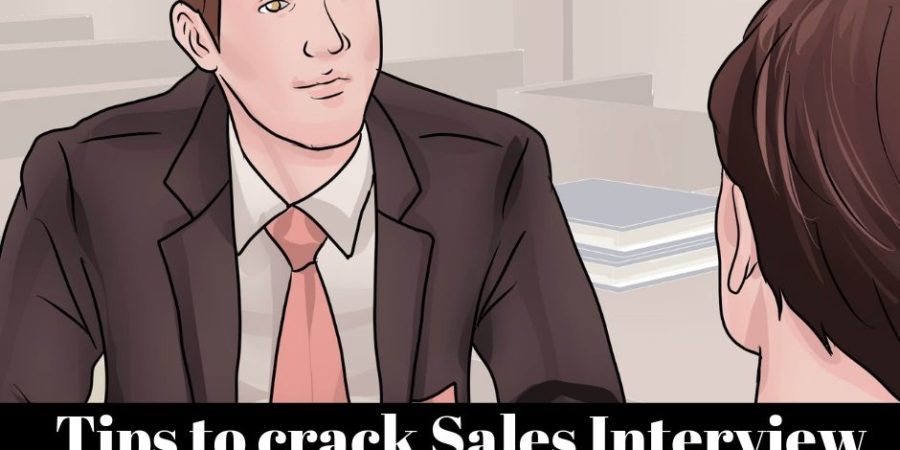How to crack sales job Interview?

Sales job interviews can often be deceptively simple and tricky at the same time, which is why it is important for candidates to stay prepared with answers to any questions that might come their way. It’s really important to hit the bull eye right while answering the questions during Interview. If you’re looking for a sales job, here are some questions and our suggested answers to them that can help you.
-
Where did you hear about this position?
Keep your answer brief and simple by suggesting a source such as a newspaper ad, referral through a friend, social media, etc.
-
Are you a fresher or do you have experience?
Be honest about how much experience you have or state that you are a fresher, if that is the case.
-
Tell me about yourself.
Focus more on personal qualities such as strengths and skills, rather than on the details of qualifications and work experience. Talk about things that are likely to hold the interviewer’s attention. Here is an example:
If you are a fresher, you can start by saying something like this, “I’m really energetic and I like to take on challenging tasks. I also believe that I am a good communicator. I was active in theatre during school and college, and that’s what gives me the passion to talk and connect with my audience”. An experienced salesperson could say something like this: “Working as a sales executive for two years has helped me build confidence and has taught me the importance of customer loyalty. I’ve also got a track record of success.”
-
How do you stay updated on the target market?
To stay updated on the target market, I like to read blogs by experts, follow trends on social media, and listen to several sales podcasts. This helps me understand various possible strategies, and how they can be used to connect with the target market.
-
In your last position, how did you balance maintaining current relationships with generating more leads?
In sales, while it is important to generate new leads to enhance brand recognition, forming relationships is also key to the growth of the company. Balancing the two can be a delicate task and is decided based on the cost-benefit impact to the company.
-
What is your method of handling customer objections?
Acknowledging the objection and suggesting a workaround with the product can help the customer feel heard. At the same time, it gives me the chance to explain another feature of the product.
-
What role does social media play in your selling process?
Social media is a great platform as professional sites like LinkedIn allows me to better research the targets to identify their needs. Twitter and Facebook are great for finding a common social ground to build a rapport.
-
What is the best way to research possible clients before a sales call?
Researching clients on social media platforms such as LinkedIn and Twitter can help identify their needs. Competitor testimonials can also be a great learning as they can help identify what exactly worked for the customers with respect to the product or service.
-
What according to you is our (company’s) USP?
The relationships that the Company has with long-standing clients is something I admire. In sales particularly, it is important to have a good rapport with clients as not only does this encourage regular sales but can also work as a reference for potential clients.
-
How long should you pursue a client?
An important factor for successful sales is need. If the client has absolutely no need at the time for a product, constant perseverance may be taken as annoying. Here, it is best to stop pursuing the client but be sure to check with them occasionally.
-
What is the difference between a short sale and long sale cycle?
A short sales cycle calls for quick action and an ability to close the deal quickly while a long sales cycle promotes extensive dialogue and building of rapport before the sale is confirmed.
-
What excites you most/least about sales?
I love meeting new people and finding new ways to communicate with different people. I also love being the go-to person. Sales is a great fit as it allows me to engage with clients and offer them solutions for business problems they may be facing.
My least favourite part is turning away a client when they are interested due to stock problems. I also dislike leaving a potential client midway as I love closing the deal.
Then comes the most crucial question which is asked to check your skills and ideology.
-
Sell me something.
Sell the interviewer a solution. Focus on what the client’s needs are, and how the pen meets those needs. You can also add a fun element in selling to break the serious environment. Here is an example:
“Easily portable, Link Pens come with a yearlong supply of ink and are able to write any amount of words throughout the day, seven days a week. But that’s not all. Have you ever caught a coworker sleeping on the job? You can use the .7mm tip to poke and wake them up. The tips of this pen are guaranteed to never go dull.”
There can be many other ways to approach the critical questions listed above, but the important part is for you to retain your focus and stay calm and composed when you face the interviewer.
